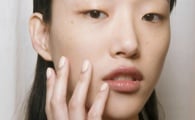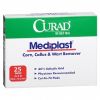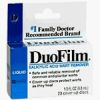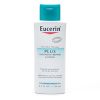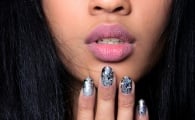Beauty Tips
Your Most Embarrassing Beauty Problems - DecodedToo mortified to talk to your friends or derm about your gross beauty issues? Here's the ugly truth on what's causing them -- and how to lose them for good |
Cold Sores = You're a Total Slut What people think it is: A scarlet letter declaring frequent one-night stands with sleazy strangers.
What it actually is: There's a stigma around cold sores, and it's not entirely without reason. Cold sores are most often caused by herpes virus type 1 (usually associated with oral cold sores) but also by herpes virus type 2 (typically associated with genital herpes).
How you get it: "More than half of Americans have had some kind of exposure to HSV1, and about 15 percent to HSV2," says Dr. Krant. Cold sores are not necessarily sexually transmitted. You can get one from sharing lip gloss or beverages, and you can even contract them in utero. It's a person-to-person communicable disease, so if you come into contact with someone who has it, you can catch it.
How you get rid of it: Once you feel a cold sore coming on (most people describe it as a tingling feeling around the mouth), start treatment immediately with an OTC cream, like Abreva or Orajel. "The faster you are able to start some form of treatment, the shorter the duration of the outbreak should be," says Dr. Krant, who notes that if you're already dealing with a full-blown cold sore, there's not much you can do to make it go away faster. She recommends OTC creams or talking to your doctor about a prescription for pills or cream if you get them every once in a while. If you have frequent outbreaks, you can also talk to your doctor about taking a daily dose of oral antiviral pills, which may suppress outbreaks over the long run. But make no mistake -- just because you can't see it doesn't mean it's no longer contagious.
How you prevent it: "The only way to prevent coming into contact with any form of HSV is to assume everyone you might have contact with has been exposed," says Dr. Krant. While you can ask someone if they have HSV, there's a chance they may not know themselves. It's also possible to be exposed to HSV1 and never have an outbreak. The same goes for HSV2, although it's less likely. Dr. Krant notes that stress, lack of sleep, excessive sun exposure, or anything that knocks your immune system can make a cold sore breakout more likely.
SEE NEXT PAGE: You Have a Keloid? Put Your Head in a Bag, Elephant Girl
What it actually is: There's a stigma around cold sores, and it's not entirely without reason. Cold sores are most often caused by herpes virus type 1 (usually associated with oral cold sores) but also by herpes virus type 2 (typically associated with genital herpes).
How you get it: "More than half of Americans have had some kind of exposure to HSV1, and about 15 percent to HSV2," says Dr. Krant. Cold sores are not necessarily sexually transmitted. You can get one from sharing lip gloss or beverages, and you can even contract them in utero. It's a person-to-person communicable disease, so if you come into contact with someone who has it, you can catch it.
How you get rid of it: Once you feel a cold sore coming on (most people describe it as a tingling feeling around the mouth), start treatment immediately with an OTC cream, like Abreva or Orajel. "The faster you are able to start some form of treatment, the shorter the duration of the outbreak should be," says Dr. Krant, who notes that if you're already dealing with a full-blown cold sore, there's not much you can do to make it go away faster. She recommends OTC creams or talking to your doctor about a prescription for pills or cream if you get them every once in a while. If you have frequent outbreaks, you can also talk to your doctor about taking a daily dose of oral antiviral pills, which may suppress outbreaks over the long run. But make no mistake -- just because you can't see it doesn't mean it's no longer contagious.
How you prevent it: "The only way to prevent coming into contact with any form of HSV is to assume everyone you might have contact with has been exposed," says Dr. Krant. While you can ask someone if they have HSV, there's a chance they may not know themselves. It's also possible to be exposed to HSV1 and never have an outbreak. The same goes for HSV2, although it's less likely. Dr. Krant notes that stress, lack of sleep, excessive sun exposure, or anything that knocks your immune system can make a cold sore breakout more likely.
SEE NEXT PAGE: You Have a Keloid? Put Your Head in a Bag, Elephant Girl










